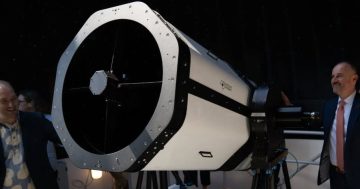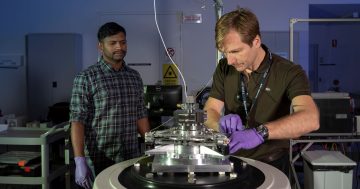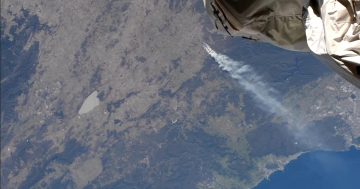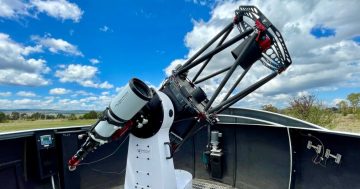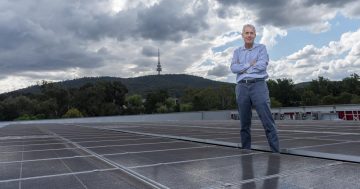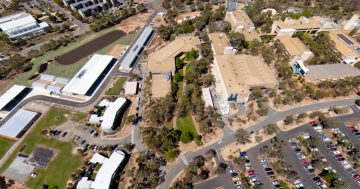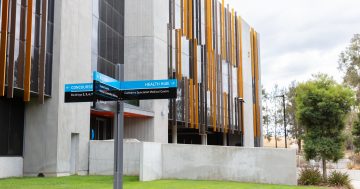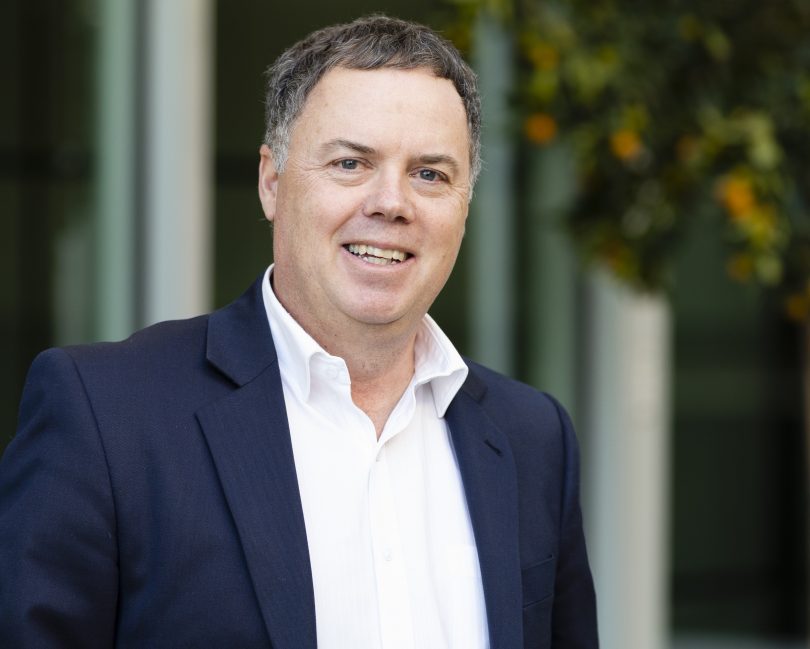
Canberra Business Chamber chief executive officer Dr Michael Schaper sees a big future for Canberra in space industries. Photo: Supplied.
Space-related researchers and industries in Canberra will be among the big winners of Prime Minister Scott Morrison’s $150 million announcement last weekend to help Australian businesses get involved in the US mission to the moon and Mars.
One beneficiary could be instrument scientist Dr Francis Bennet. Dr Bennet is leading research in optical communications for ground-to-space communications at the ANU. The ANU has extensive space capabilities through schools like the ANU Institute for Space (InSpace).
InSpace was established to drive the growth of the Australian space industry through ANU research. He says a number of projects at the institute may be suitable for the latest round of federal government funding.
“The most interesting areas are quantum communications. We have also been investigating whether it would make sense for Australia to become part of what NASA is aiming for at the moon. The advantage we have, apart from the research we do in communications here, is Australia’s geographic location,” Dr Bennet said.
“We are actually building a network of optical ground stations across Australia and New Zealand to support the research we are doing.”
Dr Bennet says optical communications is a big growth area in research and in industry.
“We have a huge amount of interest from companies and researchers around the world who want to use this ground station to downlink data from space,” Dr Bennet says. “We are doing a lot of research for the quantum communication side where you can achieve 100 per cent security in your communications. That is of interest to a lot of industry and defence [departments] all around the world.”
Dr Bennet says the space economy is huge, and not a limited resource like mining.
“As a researcher myself, I am confident the industry can be grown with investments like this. I would think this is the kind of thing that needs to be supported year on year. If you look at how much similar economies in Europe put into their space industry, it is hundreds of millions of dollars, if not billions of dollars per year and they have massive industries that benefit from this.
“As soon as you start launching and building satellites you need a lot of industry around that to support it. It is not the kind of thing you can then start to do cheaper in another country,” Dr Bennet says.
He believes Canberra could benefit from the space industry’s growth in many areas, from manufacturing components to electronics.
“Even the universities will benefit because if you start to see growth in employment industries you start to see a need for more educated, more skilled workers and that helps everyone.”
Canberra Business Chamber chief executive officer Dr Michael Schaper says investing in space-related businesses offers the potential to build on many of the core strengths that Canberra is well known for.
“We already have a well-established defence industry, of course. In some respects, they are not the same thing but there is a big opening. We have a well-educated workforce. I would have thought this was a classic one for Canberra to be involved in and opportunities abound for us.”
Dr Schaper says there is an emerging consensus that sooner or later, space is going to become a strong private-sector industry.
“This, of course, is in the long term. It will become a major industry for us, so the opportunity is there.
“It doesn’t fully exist in the sense that we do not have a fully mature space industry, but it starts somewhere and I would rather us be at that point than join in once it has already begun.”
Plenty of competitors would take the market if Australia and Canberra did not act decisively, including high-tech economies like Singapore, China and India.
“We have to get in sooner rather than later. The federal government has the big picture, the big dollars. There is room here for the territory government to be involved in this as well. Cleary there will be local industries, state or territory governments playing an important role in attracting them, there are our educational and research institutions like the ANU, CSIRO, and a host of cyber structures, all working out of here. Someone has to play a role bringing them together, talking about this,” Dr Schaper said.












